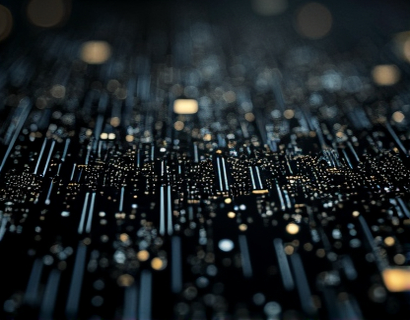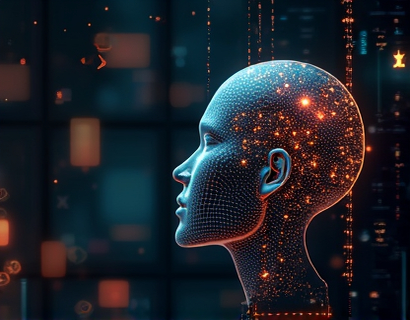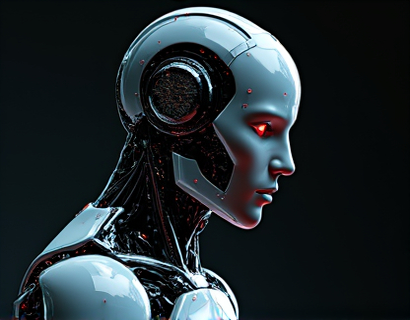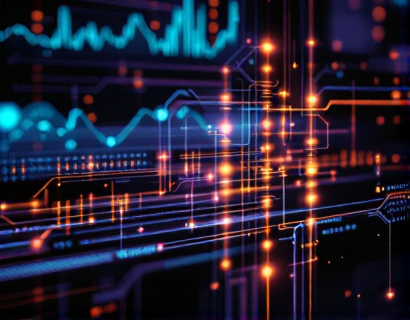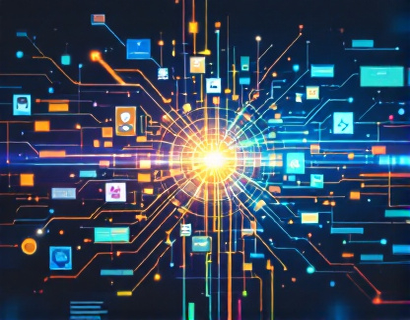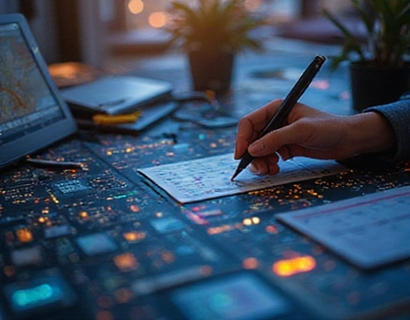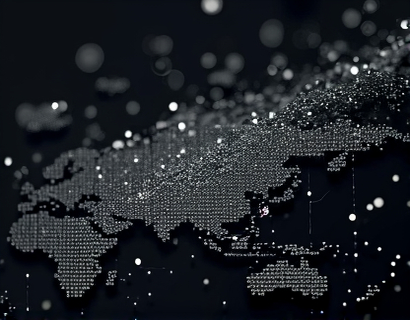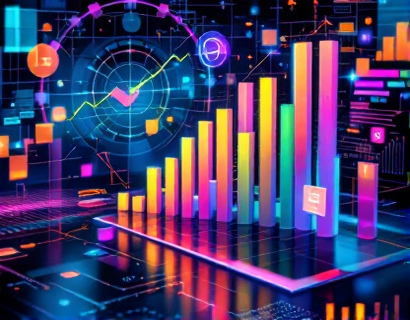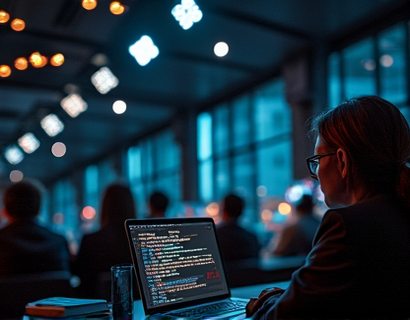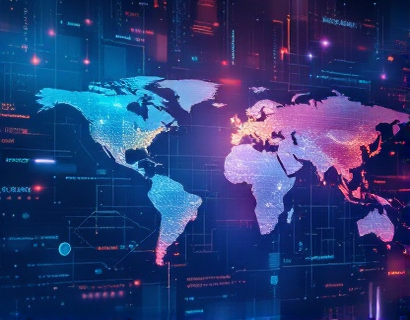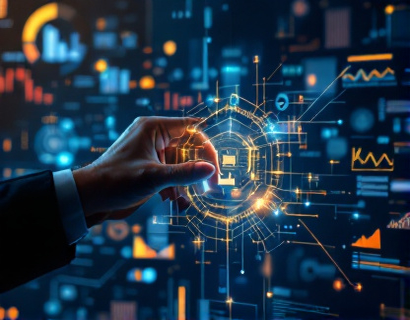Unlocking Next-Gen Productivity: The Power of Crypto and AI
The digital age has ushered in a revolution in productivity tools, driven by the convergence of cryptocurrency and artificial intelligence. This synergy is not just a technological curiosity but a practical force reshaping how we work, interact, and manage our digital lives. For tech enthusiasts and digital visionaries, understanding and leveraging this powerful combination can unlock unprecedented levels of efficiency and innovation.
The intersection of cryptocurrency and AI offers a unique set of tools and platforms that enhance productivity in ways traditional systems cannot. Cryptocurrency, with its decentralized and secure nature, provides a robust foundation for building trustless and transparent systems. AI, on the other hand, brings intelligent automation and advanced data analysis, creating a powerful duo that can streamline complex tasks and optimize workflows.
Decentralized Productivity Platforms
One of the most significant advantages of combining crypto and AI is the creation of decentralized productivity platforms. These platforms leverage blockchain technology to ensure data integrity and user control, while AI algorithms optimize task management and collaboration. For instance, a decentralized task management system can use AI to predict task completion times, allocate resources efficiently, and even automate routine tasks, all while ensuring that data is securely stored and accessible only to authorized users.
Such platforms can revolutionize how teams collaborate, especially in global settings where trust and transparency are paramount. By removing intermediaries and central points of failure, these systems reduce friction and increase productivity. Users can focus on their core work, knowing that AI-driven tools are handling the behind-the-scenes logistics.
Smart Contracts for Automated Workflows
Smart contracts, a key feature of blockchain technology, can automate complex workflows with precision and reliability. When combined with AI, smart contracts can adapt to changing conditions and execute tasks based on real-time data. For example, in project management, a smart contract can automatically release funds to a contractor once AI-driven metrics confirm that milestones have been met. This not only speeds up the payment process but also reduces the risk of disputes and errors.
Moreover, AI can analyze historical data to predict potential bottlenecks and suggest optimizations. This proactive approach ensures that projects stay on track and resources are used efficiently. The integration of AI with smart contracts thus creates a self-regulating system that enhances productivity and accountability.
Enhanced Data Security and Privacy
Data security and privacy are critical concerns in the digital age, and the combination of crypto and AI offers robust solutions. Blockchain's inherent security features, such as cryptographic hashing and consensus mechanisms, ensure that data is tamper-proof and secure. AI, with its advanced encryption and anomaly detection capabilities, further fortifies these systems against cyber threats.
For instance, AI-powered security systems can monitor network activity in real-time, identifying and mitigating threats before they cause damage. This proactive defense mechanism is particularly valuable for businesses handling sensitive information. By integrating AI with blockchain, organizations can achieve a higher level of data protection, fostering trust and confidence among users.
Intelligent Resource Management
AI-driven resource management is another area where the fusion of crypto and AI shines. AI algorithms can analyze vast amounts of data to optimize resource allocation, from computing power to human resources. In a decentralized environment, these algorithms can dynamically adjust resources based on demand, ensuring that no asset is underutilized or wasted.
For example, in cloud computing, AI can predict peak usage times and automatically scale resources to meet demand, while blockchain ensures that transactions and resource allocations are transparent and secure. This not only improves efficiency but also reduces costs, as users pay only for the resources they actually use.
Personalized Productivity Tools
AI's ability to learn from user behavior and preferences makes it an ideal companion for personalized productivity tools. By analyzing how users work, AI can tailor recommendations and automate tasks to suit individual needs. When integrated with blockchain, these tools can ensure that user data is owned and controlled by the user, enhancing privacy and trust.
For instance, a personalized AI assistant can suggest optimal work schedules, manage email notifications, and even automate repetitive tasks based on the user's habits and preferences. The decentralized nature of blockchain ensures that this data is secure and that users have full control over their information.
Supply Chain Optimization
The supply chain industry stands to benefit greatly from the combination of crypto and AI. Blockchain can provide a transparent and immutable record of transactions, while AI can optimize every step of the supply chain, from production to delivery. AI algorithms can predict demand, optimize inventory levels, and even detect fraudulent activities by analyzing patterns and anomalies in real-time.
Smart contracts can automate payments and ensure that all parties adhere to contractual obligations, reducing delays and disputes. This level of transparency and efficiency not only streamlines operations but also builds trust among supply chain partners. The use of cryptocurrency in transactions further simplifies cross-border payments, reducing fees and processing times.
Financial Inclusion and Microtransactions
Crypto and AI can also democratize access to financial services, promoting financial inclusion and enabling microtransactions. Traditional financial systems often exclude individuals in underserved regions due to high costs and complex regulations. Blockchain-based platforms can provide a low-cost, accessible alternative, while AI can facilitate smart and fair transactions.
For example, AI-driven credit scoring models can evaluate creditworthiness based on alternative data sources, such as mobile usage patterns or social media activity. This allows individuals without traditional credit histories to access financial services. Microtransactions, made possible by the low fees of cryptocurrency, enable small, frequent payments that are essential for many online services and peer-to-peer transactions.
Challenges and Considerations
While the potential of crypto and AI in enhancing productivity is immense, there are challenges and considerations to keep in mind. Regulatory uncertainty remains a significant hurdle, as governments worldwide are still grappling with how to regulate these emerging technologies. Compliance with data protection laws, such as GDPR, is crucial to ensure that user data is handled responsibly.
Technical complexity is another factor. Integrating blockchain and AI requires specialized knowledge and resources. Organizations must invest in training and development to build a skilled team capable of leveraging these technologies effectively. Additionally, the energy consumption of blockchain, particularly proof-of-work systems, raises environmental concerns that need to be addressed.
Future Prospects
Looking ahead, the synergy between crypto and AI is poised to drive even more innovative solutions. As technology advances, we can expect more sophisticated AI models that can operate on decentralized networks, further enhancing privacy and security. The development of more energy-efficient consensus mechanisms will also make blockchain more sustainable.
Moreover, the integration of AI with other emerging technologies, such as the Internet of Things (IoT) and 5G, will create new opportunities for productivity and efficiency. The future holds the promise of smart, autonomous systems that can adapt and optimize in real-time, driven by the powerful combination of cryptocurrency and artificial intelligence.
For tech enthusiasts and digital visionaries, embracing this synergy is not just an option but a necessity. By staying at the forefront of these developments, they can harness the full potential of crypto and AI to revolutionize their work and contribute to a more efficient, secure, and inclusive digital world.



